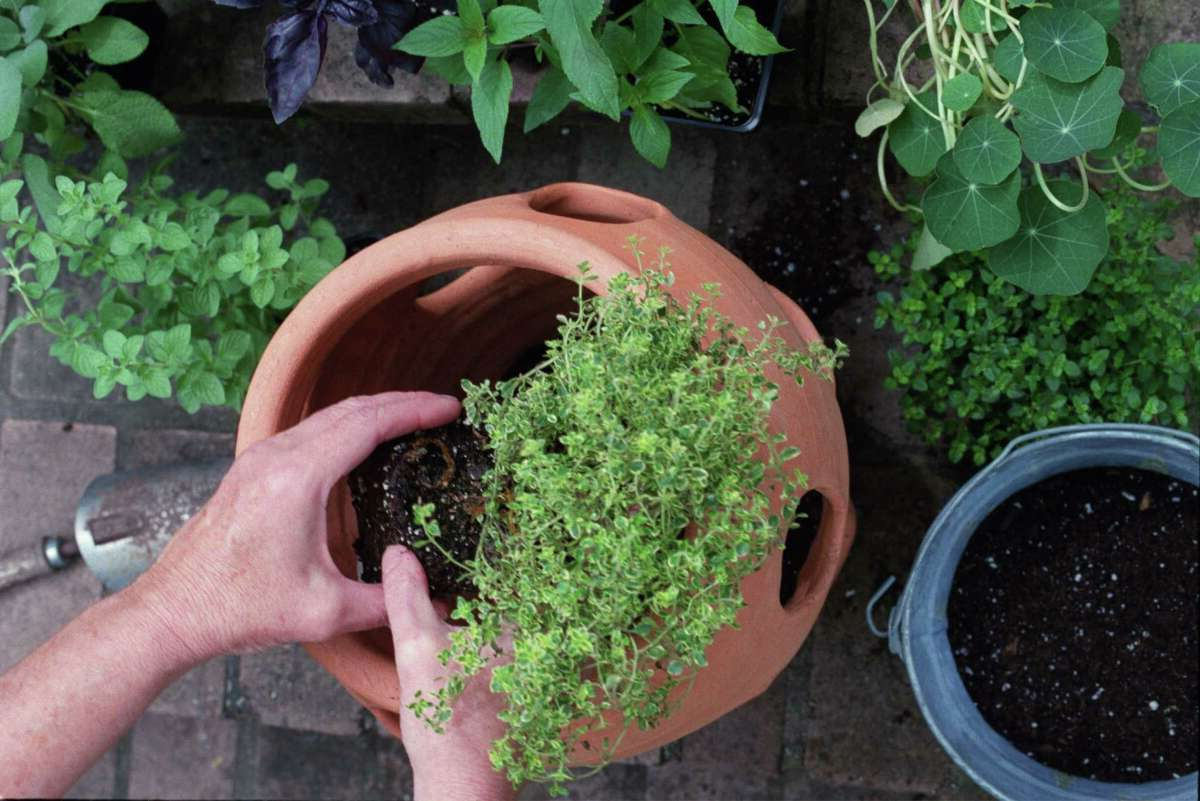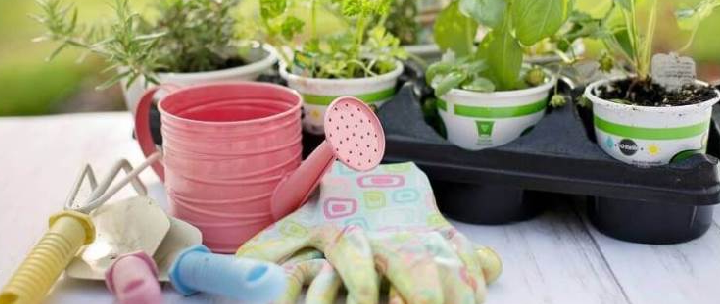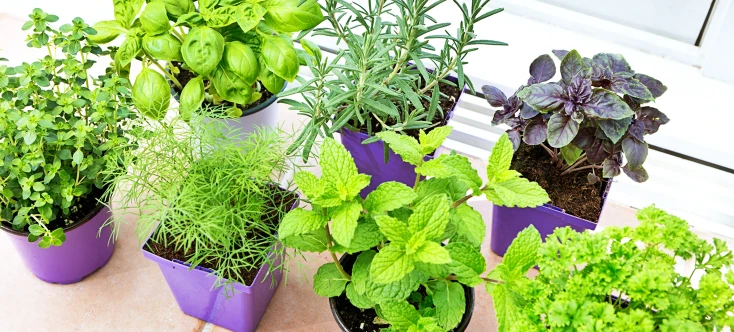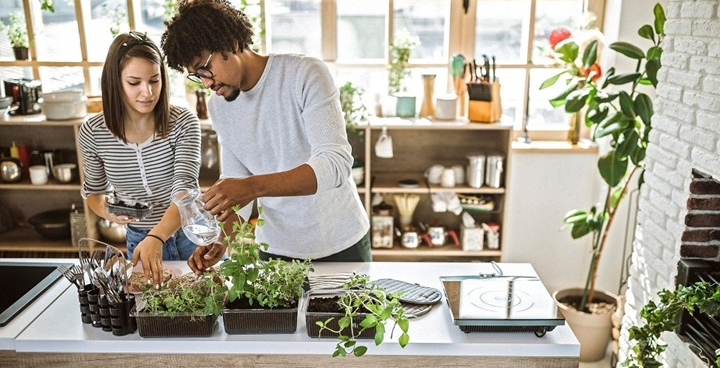
Herbs have been used for centuries to promote health and wellness, and many people are now turning to natural remedies to support their well-being. Growing your own herbs can be a great way to incorporate these powerful plants into your daily routine, and it’s easier than you might think. Here we explore the benefits of growing your own herbs for health and wellness, as well as provide tips and guidance on how to get started.
Benefits of Growing Your Own Herbs
Growing your own herbs provides a range of benefits for your health and well-being. When you grow your own herbs, you have complete control over the quality and purity of the plants you use. You can also save money on herbs by growing them yourself instead of buying them at a store.
Growing your own herbs allows you to customize your herb garden to your specific needs, whether you’re looking to support your digestive health, reduce stress, or promote better sleep. Growing herbs can also be a fun and rewarding hobby that can help you connect with nature and enjoy the satisfaction of growing your own food and medicine. Here are some additional benefits of growing your own herbs:
- Freshness and Flavor: Homegrown herbs are often much fresher than store-bought herbs, which can lose their potency over time. Fresh herbs also tend to have a more intense flavor, which can add a new level of depth to your cooking.
- Sustainability: Growing your own herbs can be a sustainable practice, as it reduces the environmental impact of transporting and packaging herbs from distant locations. When you grow your own herbs, you can avoid the use of harmful pesticides and herbicides, which can be present in conventionally grown herbs.
- Educational Value: Growing your own herbs can be an excellent way to learn about different plant species and their health benefits. It can also help you develop new skills, such as gardening and plant care.
- Convenience: Having an herb garden at home means that you always have fresh herbs on hand whenever you need them, without having to run to the store. This can be especially helpful if you live in a rural area, or if you have limited access to fresh herbs.
- Mood-Boosting: The act of caring for and nurturing plants can have a positive impact on your mental health, as it can help reduce stress and improve your mood. Many herbs themselves have mood-boosting properties, such as lavender and chamomile, which can help promote relaxation and reduce anxiety.

Choosing the Right Herbs
When choosing herbs to grow in your garden, it’s important to consider both their health benefits and their growing requirements. Some herbs, such as mint and oregano, are relatively easy to grow and require minimal care, while others, such as rosemary and thyme, are more challenging to cultivate.
It’s also important to select herbs based on your personal health needs, as different herbs have different properties and can support various aspects of your well-being. For example, if you’re looking to support your digestive health, you might consider growing herbs like peppermint, fennel, or ginger, while if you’re looking to boost your immune system, you might opt for herbs like echinacea or elderberry. You should consider the amount of space you have available, as some herbs, such as basil and parsley, can be grown in small containers, while others, such as sage and lavender, require more space to thrive. Here are some additional things to consider when choosing the right herbs to grow:
- Growing Conditions: Different herbs have different requirements for light, water, and soil conditions. Some herbs, like basil and cilantro, prefer full sun and well-drained soil, while others, like chives and parsley, can tolerate partial shade and moisture.
- Climate: The climate in your region can also impact which herbs will thrive in your garden. Some herbs, like rosemary and thyme, prefer a hot and dry climate, while others, like mint and lemon balm, prefer cooler and more moist conditions.
- Culinary Uses: If you plan to use your herbs in cooking, it’s important to choose herbs that are commonly used in the types of dishes you enjoy making. For example, if you enjoy Italian cuisine, you might want to grow herbs like basil, oregano, and thyme.
- Medicinal Properties: Herbs can also be grown for their medicinal properties, as many herbs have been traditionally used for their healing properties. If you’re interested in using herbs for health and wellness, you might want to consider growing herbs like echinacea, chamomile, or valerian.
- Aesthetic Value: Finally, you might want to consider the aesthetic value of different herbs. Some herbs, like lavender and chamomile, have beautiful blooms that can add color and texture to your garden, while others, like lemon verbena and lemon thyme, have a delightful fragrance that can make your garden more enjoyable to be in.

Growing Your Own Herb Garden
Growing your own herb garden can be a fun and rewarding experience that can provide you with fresh herbs for cooking and for health and wellness purposes. When starting an herb garden, it’s important to consider the growing conditions of your location, including the amount of sunlight and water that your plants will receive. You can start an herb garden in containers, such as pots or planters, or in a designated area in your yard.
You’ll need to choose the appropriate soil for your herbs and select the right type of fertilizer to promote healthy growth. It’s also important to be aware of the specific care requirements of each herb, as different herbs have different needs when it comes to pruning, watering, and harvesting. With the right preparation and care, you can create a thriving herb garden that will provide you with a steady supply of fresh, home-grown herbs.

Using Herbs for Health and Wellness
Herbs can be used for a variety of health and wellness purposes, including as supplements, teas, or in the form of essential oils. Herbs have been traditionally used for their anti-inflammatory, immune-boosting, and stress-reducing properties. For example, ginger and turmeric can help reduce inflammation in the body, while chamomile and lavender can help promote relaxation and improve sleep quality.
You can also use herbs to make your own natural beauty and skincare products, such as lotions, salves, and balms. When using herbs for health and wellness purposes, it’s important to research the properties of each herb and to use them in a safe and appropriate manner, such as consulting with a healthcare professional before starting any new herbal supplements. You should always choose high-quality herbs that are free from contaminants or harmful additives. With the right knowledge and care, herbs can be a powerful tool for supporting your overall health and well-being.
